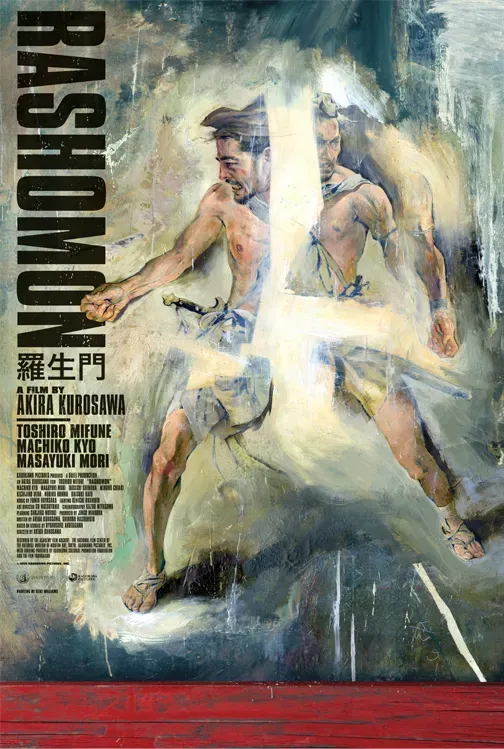Rashomon (1950)

Rashomon (1950) is a haunting, minimalist crime drama that dramatizes how truth unravels under the pressure of memory, ego and self-preservation. Set around the ruined Rashomon gatehouse, the film frames a murder and sexual assault through a series of conflicting eyewitness accounts: a notorious bandit, the murdered samurai’s wife, the samurai himself (speaking through a medium), and a woodcutter who found the body. Each version contradicts the others, shifting motive, deed and meaning until certainty dissolves. The film’s storytelling is spare but intense — overlapping flashbacks, stark black-and-white imagery, rain-swept ruins and a slow reveal of character and motive. Rather than delivering answers, the narrative exposes the fragility of memory, the layers of self-justification people build, and the moral ambiguity at the heart of human behavior. Small revelations (including the woodcutter’s own withheld truth) repeatedly upend what the audience thinks it knows. As a viewer you’ll be drawn into a puzzle: emotionally unsettled, intellectually provoked and visually absorbed. Rashomon doesn’t offer neat closure; it asks you to judge how, and whether, an absolute truth can be known. The experience is equal parts philosophical provocation and austere cinematic beauty — tense, melancholic and lingering long after the credits.
Actors: Toshirô Mifune, Machiko Kyô, Masayuki Mori
Director: Akira Kurosawa
Runtime: 88 min
Genres: Crime, Drama, Mystery
![]() 8.1
/10
8.1
/10
98
/100
8.2
/10
![]() 8.7
/10
8.7
/10